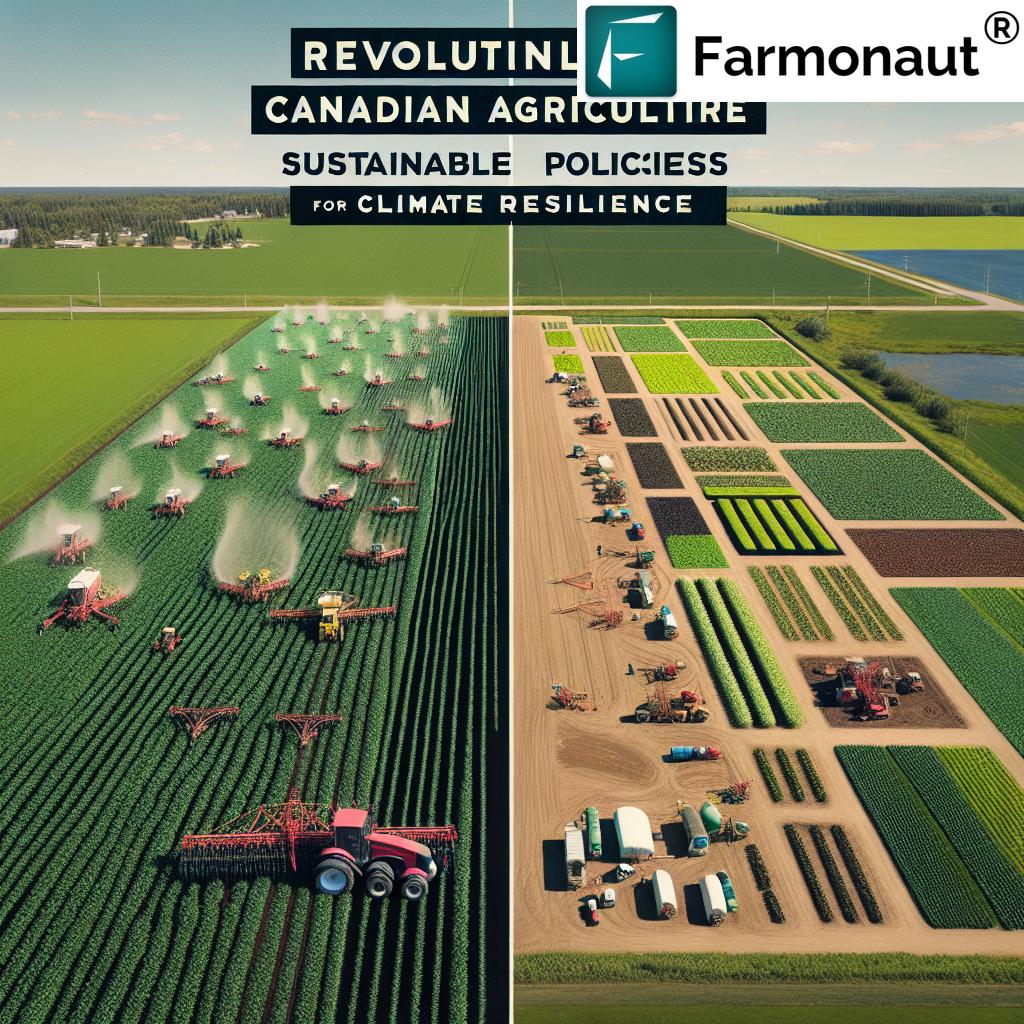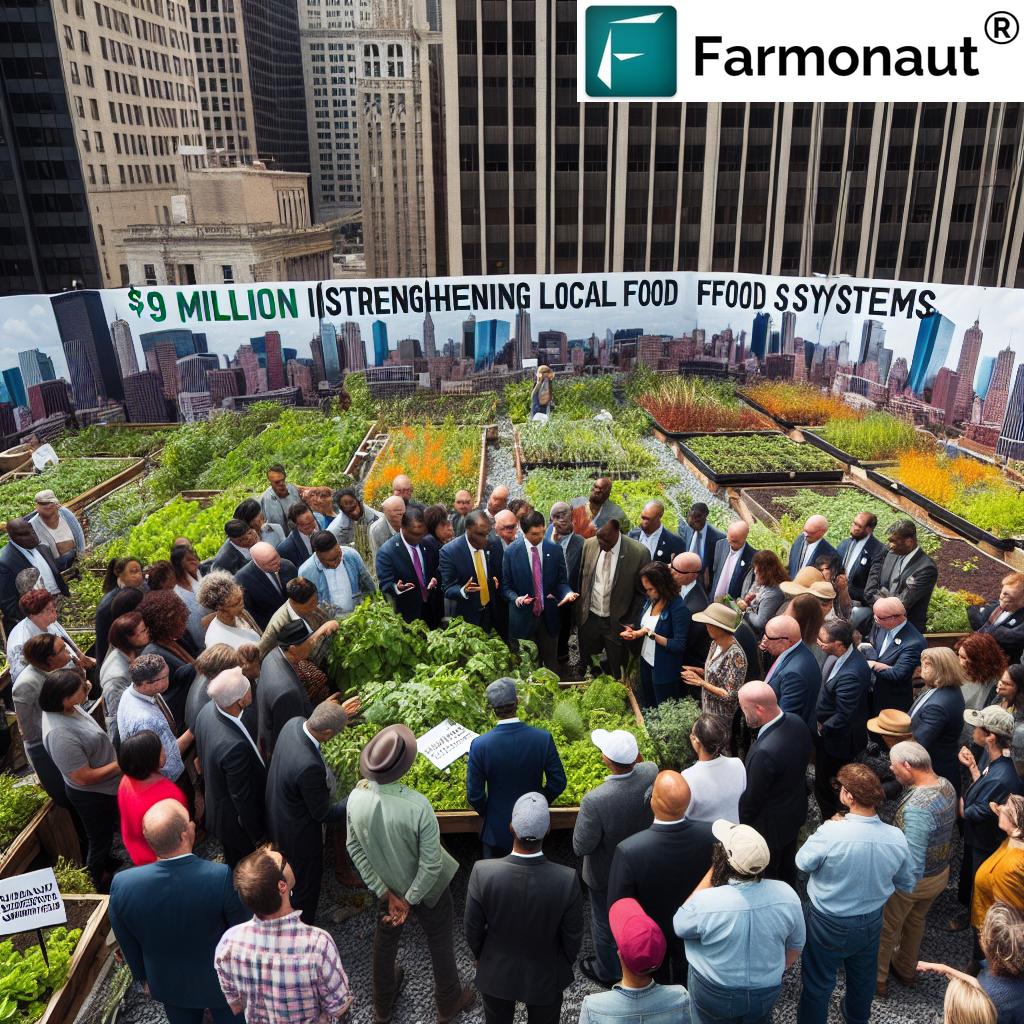Revolutionize Canada’s Food Future: Urgent Call for Sustainable Agricultural Policies to Combat Climate Change and Boost Health

As World Food Day approaches on October 16th, a global initiative drawing attention to the “right to foods for a better life and a better future,” it’s crucial to examine Canada’s current agricultural landscape. Despite being a major food producer, Canada’s agricultural policies are falling short of meeting the nation’s health and sustainability goals. This article explores the urgent need for a revolution in Canada’s food and farming practices to combat climate change, improve public health, and ensure a sustainable future.
The Misalignment of Canadian Agricultural Policies and Health Guidelines
Canada’s current agricultural policies are not serving the well-being of its citizens. There’s a significant disconnect between the government’s dietary guidelines and the financial support provided to various agricultural sectors. This misalignment has far-reaching consequences for both public health and the environment.
- Minimal investment in fruit and vegetable production, despite under-consumption by Canadians
- Overwhelming financial support for feed crops, export crops, and foods high in saturated fat
- Rising rates of food and lifestyle diseases such as diabetes, obesity, and heart disease
The health-care costs associated with diet-related diseases are staggering, estimated to be between 2% and 19% of all health-care costs in Canada. This underscores the critical link between agriculture and health, highlighting the need for a more holistic approach to agricultural policy.
Climate Change and Canadian Farming: A Two-Way Street

Climate change and Canadian farming are inextricably linked. Agriculture is a significant contributor to Canada’s greenhouse gas emissions, yet it’s also highly vulnerable to the impacts of climate change. As extreme weather events become more frequent and severe, the stability of Canada’s food production is increasingly at risk.
The current focus on input-intensive crops and animal agriculture contributes substantially to methane and nitrous oxide emissions, accelerating global warming. This vicious cycle threatens not only Canada’s food security but also its role in global food trade.
To address these challenges, farmers and policymakers can leverage advanced technologies. For instance, the Farmonaut app offers valuable insights for precision agriculture, helping farmers optimize resource use and reduce environmental impact.
The Economic Paradox of Canadian Agriculture
Despite significant government support, many Canadian farmers are struggling financially. The National Farmers Union reports that over the last three decades, agribusiness corporations have captured 95% of all farm revenues, leaving farmers with just 5%. This economic disparity highlights the need for a radical rethinking of Canadian agricultural policies.
- 66% of Canadian farms had revenues between $10,000 to $249,999 in 2016
- Many farms operate with expenses exceeding their revenue
- $12.5 billion in annual agricultural supports fail to address core issues
To support farmers in adopting more sustainable practices, tools like the Farmonaut Satellite Weather API can provide crucial data for informed decision-making.
Solutions for a Sustainable Food Future
Transforming Canada’s food systems is essential to avert devastating climate change and ecological devastation. The good news is that many Canadian farmers are already incorporating principles of sustainable food systems into their practices. Here are key areas for improvement:
- Promote Agroecological Farming Practices: Support family farms that use environmentally friendly production methods.
- Align Production with Dietary Guidelines: Increase support for grain, fruit, and vegetable production for direct human consumption.
- Strengthen Bioregional Food Systems: Encourage local food movements and reduce reliance on long-distance food transportation.
- Empower Small and Medium-sized Food Businesses: Reduce the dominance of oligopolies in Canada’s food system.
- Integrate Technology: Utilize tools like the Farmonaut Android app or iOS app to optimize farming practices.
The Role of Local and Bioregional Food Systems
Local food systems in Canada have gained significant support as an alternative to anonymous, transnational food networks. These initiatives offer numerous benefits:
- Reduced food miles and lower carbon footprint
- Increased food security and community resilience
- Better connection between consumers and food producers
- Support for local economies and rural development
However, local initiatives alone are not enough to meet Canada’s health, community vitality, and environmental goals. They must be part of a larger, coordinated effort supported by policies that align agricultural production with healthy diets and sustainable food production.
Towards a Holistic Food Policy
Canada needs a new approach to food policies that goes beyond GDP and considers the broader impacts on health, environment, and community well-being. This approach should be based on the One Planet and One Health frameworks, recognizing the interconnectedness of human, animal, and environmental health.
Key elements of a holistic food policy include:
- Integration of sustainable agriculture policies with public health initiatives
- Support for agroecological farming practices that promote biodiversity and soil health
- Development of bioregional food systems that reflect local ecological and cultural contexts
- Investment in research and innovation for sustainable food production
- Education and awareness programs to promote healthy and sustainable food choices
By implementing these policies, Canada can create a food system that not only nourishes its population but also contributes to environmental sustainability and economic resilience.
Conclusion: A Call to Action
The transformation of Canada’s food and agricultural systems is not just a necessity; it’s an opportunity to create a healthier, more sustainable, and more equitable society. By aligning Canadian agricultural policies with dietary guidelines, supporting local food movements, and embracing agroecological farming practices, Canada can lead the way in combating climate change and improving public health.
As we approach World Food Day, let’s seize this moment to demand change and work towards a food future that truly serves all Canadians. The time for action is now – our health, our environment, and our future depend on it.
To stay updated on the latest in agricultural technology and sustainable farming practices, explore the Farmonaut platform:
For developers interested in integrating agricultural data into their applications, check out the Farmonaut API Developer Docs.
















